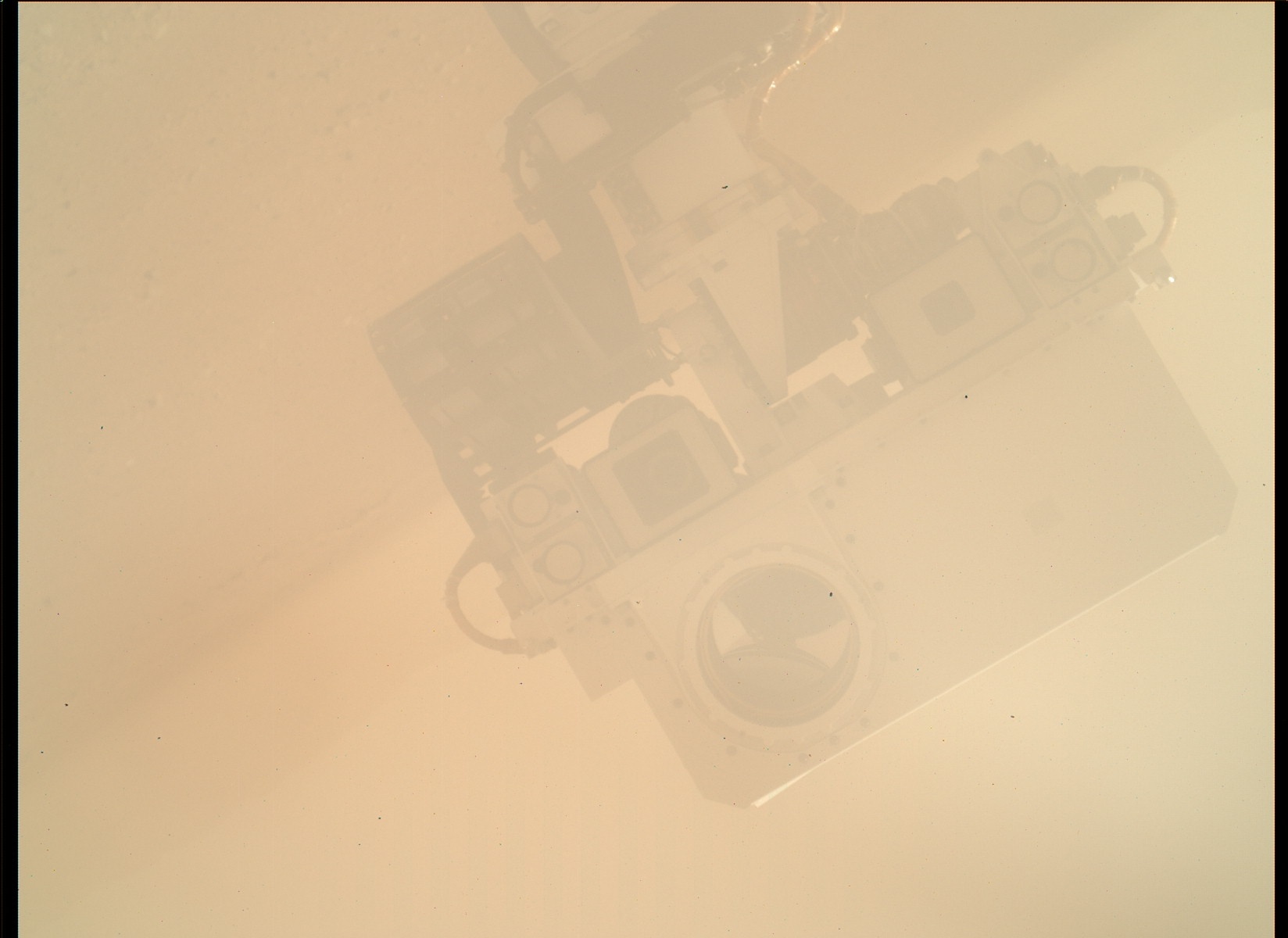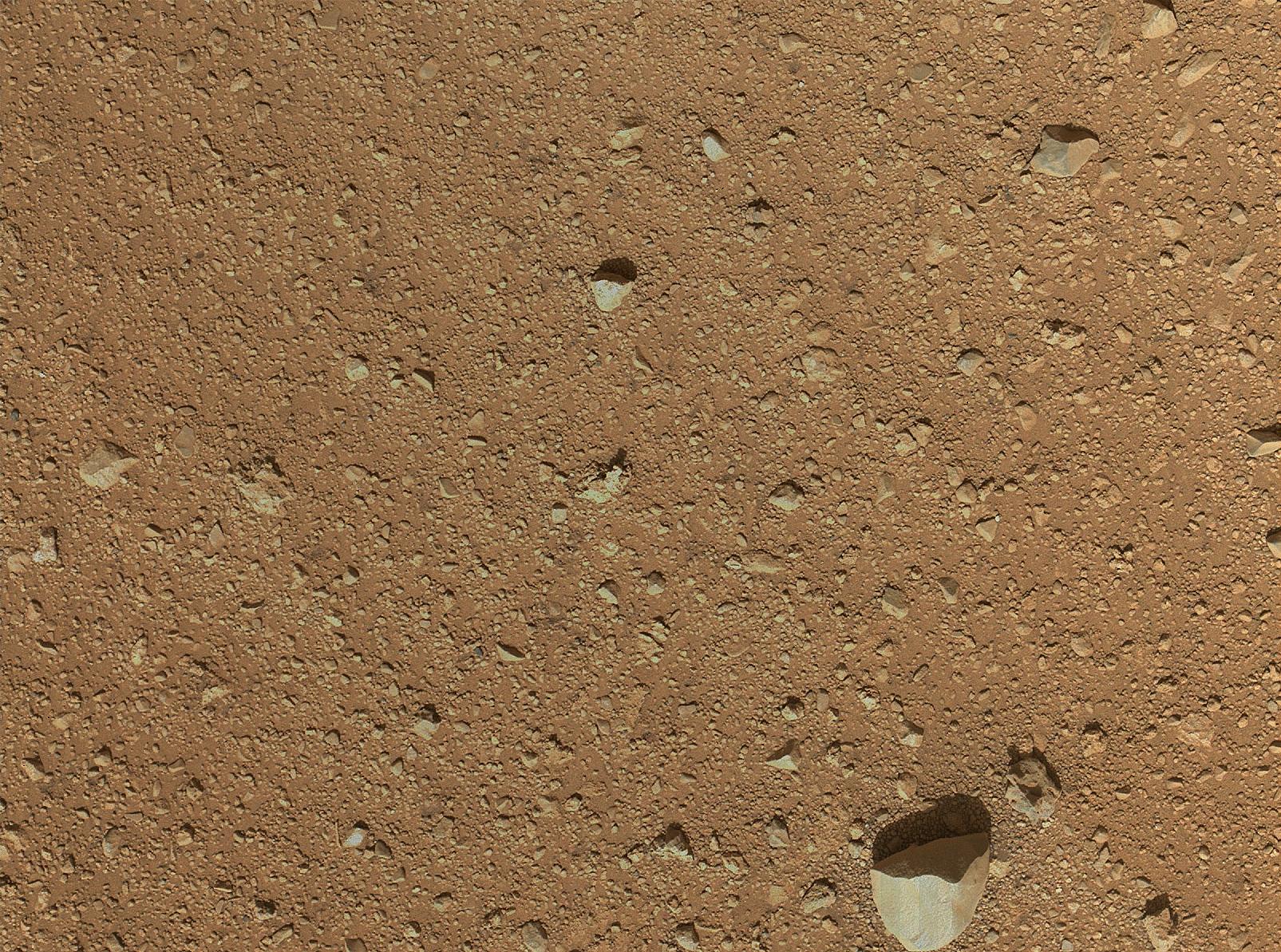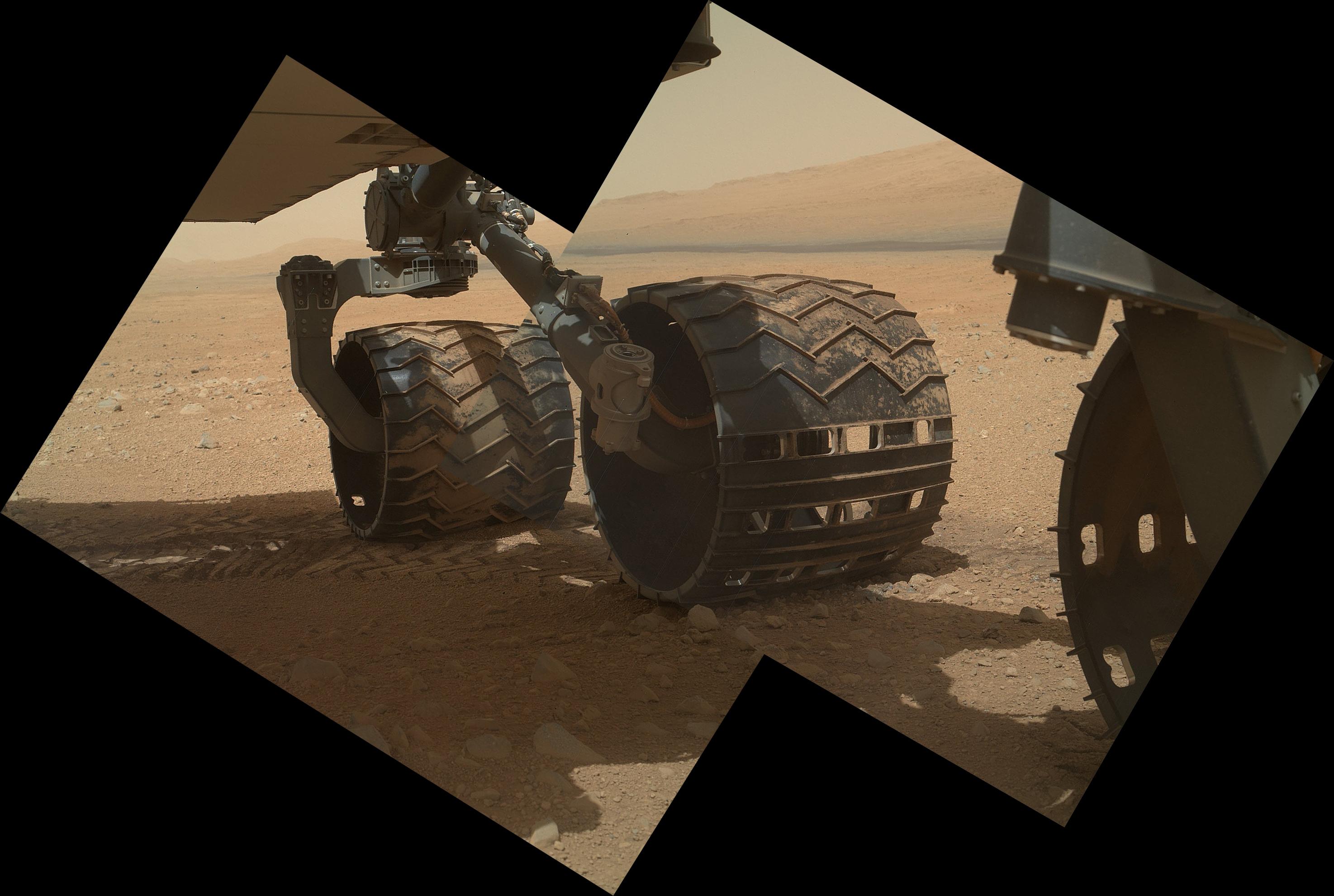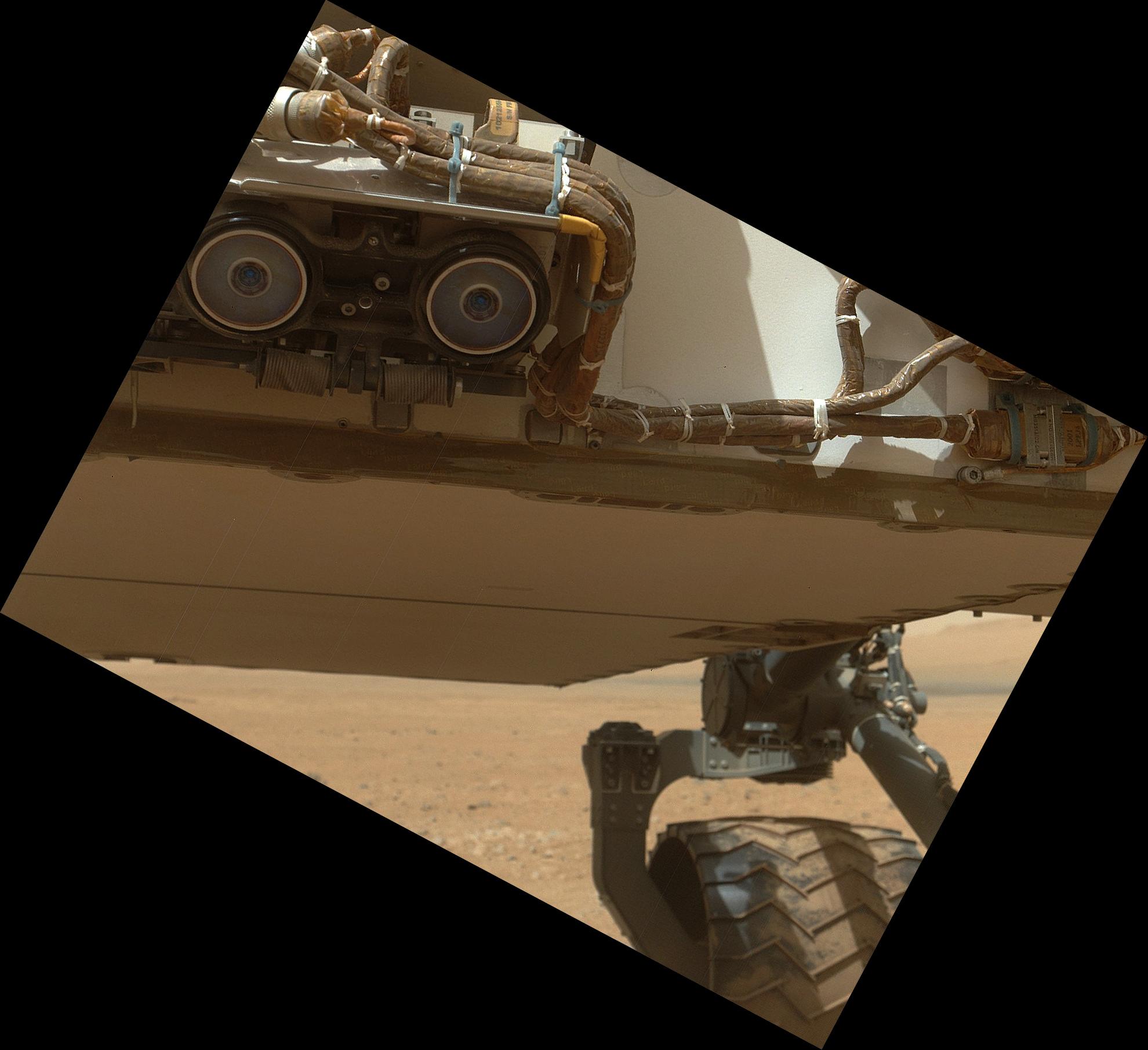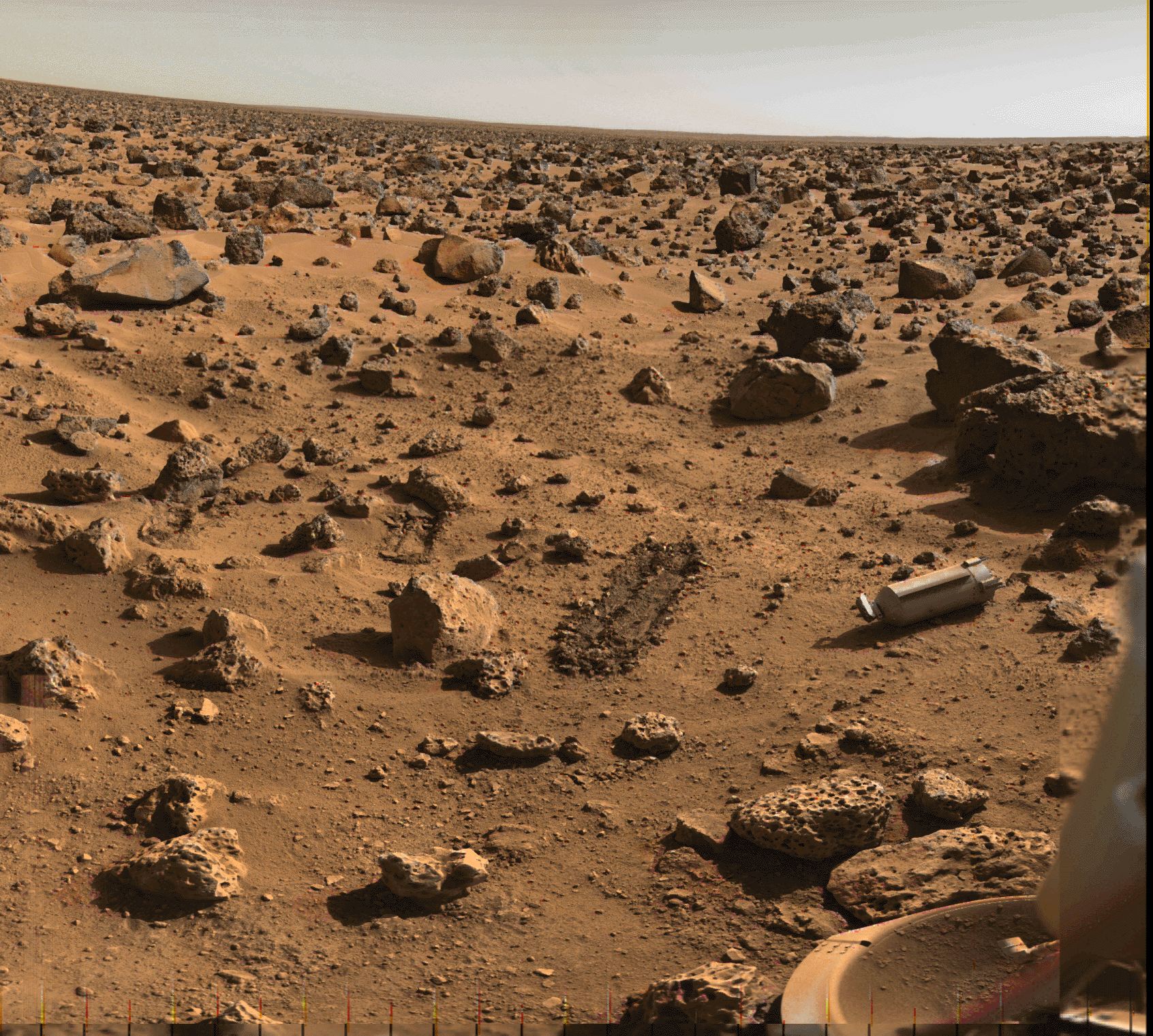W&T Wetenschap & Technologie
Een plek om te discussiëren over wetenschappelijke onderwerpen, wetenschappelijke problemen, technologische projecten en grootse uitvindingen.



Beetje onverantwoord om zo'n artikel te schrijven. Natuurlijk dat niet iemand dit zo gauw doet, maar soms heb je van die vervelende gekken tussen zitten, die hier voldoende aanknopingspunten in vinden om uit te werken.
Stel je voor dat het ze ook nog eens lukt om de BIOS/POST Mac-hardware op Curiosity lam te leggen. Zeg dan maar dag tegen je 2,5 miljard kostende autootje op Mars.
Stel je voor dat het ze ook nog eens lukt om de BIOS/POST Mac-hardware op Curiosity lam te leggen. Zeg dan maar dag tegen je 2,5 miljard kostende autootje op Mars.


mowah, de gekken die daadwerkelijk de intentie, kennis, financien en apparatuur hebben om dit te doen, hebben een artikel zoals deze niet nodigquote:Op zondag 2 september 2012 03:40 schreef KeimpeHart het volgende:
Beetje onverantwoord om zo'n artikel te schrijven. Natuurlijk dat niet iemand dit zo gauw doet, maar soms heb je van die vervelende gekken tussen zitten, die hier voldoende aanknopingspunten in vinden om uit te werken.
Stel je voor dat het ze ook nog eens lukt om de BIOS/POST Mac-hardware op Curiosity lam te leggen. Zeg dan maar dag tegen je 2,5 miljard kostende autootje op Mars.
Totaal Travel 04-24: 87 reizen, 151 vliegtickets, 58 landen, 6 continenten, 949 reisdagen, 163.804 foto's
Mijn reisfotos!
Mijn reisfotos!


Ik dacht dat dat ding de Explorer heette.. zo noem ik hem tenminste de hele tijd als ik over de ruimte praat met mensen


laten we dat maar niet doenquote:Op zondag 2 september 2012 10:17 schreef Acit het volgende:
Ik dacht dat dat ding de Explorer heette.. zo noem ik hem tenminste de hele tijd als ik over de ruimte praat met mensen
niet raar opkijken als iets explorer noemt en dan vervolgens crasht. Naam van dit schip was MS Explorer...
Totaal Travel 04-24: 87 reizen, 151 vliegtickets, 58 landen, 6 continenten, 949 reisdagen, 163.804 foto's
Mijn reisfotos!
Mijn reisfotos!


Ik moest lachenquote:Op zondag 2 september 2012 10:42 schreef ETA het volgende:
[..]
laten we dat maar niet doen
[ afbeelding ]
niet raar opkijken als iets explorer noemt en dan vervolgens crasht. Naam van dit schip was MS Explorer...
[i] When you try your best but you don't succeed. When you get what you want but not what you need. [/i]


Mooierdquote:Op zaterdag 8 september 2012 16:59 schreef Tauchmeister het volgende:
[ afbeelding ]
Foto van zichzelf
[i] When you try your best but you don't succeed. When you get what you want but not what you need. [/i]


SMILE...... Youre on candid cameraquote:Op zaterdag 8 september 2012 16:59 schreef Tauchmeister het volgende:
[ afbeelding ]
Foto van zichzelf
<a href="http://www.vwkweb.nl/" rel="nofollow" target="_blank">[b]Vereniging voor weerkunde en klimatologie[/b]</a>
<a href="http://www.estofex.org/" rel="nofollow" target="_blank">[b]ESTOFEX[/b]</a>
<a href="http://www.estofex.org/" rel="nofollow" target="_blank">[b]ESTOFEX[/b]</a>


Jup, duidelijk familie van Wall-e.quote:Op zaterdag 8 september 2012 16:59 schreef Tauchmeister het volgende:
[ afbeelding ]
Foto van zichzelf
Opgeblazen gevoel of winderigheid? Zo opgelost met Rennie!


Eerder Jonnhy 5quote:Op zondag 9 september 2012 00:37 schreef Eyjafjallajoekull het volgende:
[..]
Jup, duidelijk familie van Wall-e.
<a href="http://www.vwkweb.nl/" rel="nofollow" target="_blank">[b]Vereniging voor weerkunde en klimatologie[/b]</a>
<a href="http://www.estofex.org/" rel="nofollow" target="_blank">[b]ESTOFEX[/b]</a>
<a href="http://www.estofex.org/" rel="nofollow" target="_blank">[b]ESTOFEX[/b]</a>


Nee, het is de achterneef van Wall-e. Niet tegen um zeggen, maar hij is een beetje 'speciaal'. Ongelukje na een overdosis elektromagnetische straling.quote:Op zondag 9 september 2012 01:17 schreef -CRASH- het volgende:
[..]
Eerder Jonnhy 5
[ afbeelding ]
[ afbeelding ]
Opgeblazen gevoel of winderigheid? Zo opgelost met Rennie!


Beetje creepy foto dit
The difference between the three Abrahamic religions:
- Christianity mumbling to the ceiling,
- Judaism mumbling to the wall,
- Islam mumbling to the floor.
- Christianity mumbling to the ceiling,
- Judaism mumbling to the wall,
- Islam mumbling to the floor.


Eerste foto met open stofkap.
De steen onderaan is zo'n 8 cm.
[ Bericht 7% gewijzigd door Robus op 09-09-2012 18:57:17 ]
De steen onderaan is zo'n 8 cm.
[ Bericht 7% gewijzigd door Robus op 09-09-2012 18:57:17 ]


Lekker scherp beeld!  Het gaat om die camera op de arm, neem ik aan?
Het gaat om die camera op de arm, neem ik aan?
The difference between the three Abrahamic religions:
- Christianity mumbling to the ceiling,
- Judaism mumbling to the wall,
- Islam mumbling to the floor.
- Christianity mumbling to the ceiling,
- Judaism mumbling to the wall,
- Islam mumbling to the floor.


Scherp genoeg om ergens een jezus in te kunnen zien 
Exponentiële deflatie van Bitcoin maakt arme mensen nog veel sneller armer dan het grote probleem van inflatie. Gematigde burning van Ethereum is de gulden middenweg.


Een wat? 
The difference between the three Abrahamic religions:
- Christianity mumbling to the ceiling,
- Judaism mumbling to the wall,
- Islam mumbling to the floor.
- Christianity mumbling to the ceiling,
- Judaism mumbling to the wall,
- Islam mumbling to the floor.


Ik had een kleinere foto geplaatst zag ik. Heb nu de full-size erin gezet en is inderdaad gemaakt met de camera op de arm 


OH HAI
Op dinsdag 23 augustus 2011 23:18 schreef problematiQue het volgende:
Mensen die zomaar claimen dat A beter is dan B moet je gewoon negeren. Internetruis.
Mensen die zomaar claimen dat A beter is dan B moet je gewoon negeren. Internetruis.


Druk..... Curi is heavy metal (899KG)quote:Op maandag 10 september 2012 15:23 schreef xzaz het volgende:
Iemand een verklaring voor het stof dat aan de wielen blijft hangen? Is dat statisch oid?
<a href="http://www.vwkweb.nl/" rel="nofollow" target="_blank">[b]Vereniging voor weerkunde en klimatologie[/b]</a>
<a href="http://www.estofex.org/" rel="nofollow" target="_blank">[b]ESTOFEX[/b]</a>
<a href="http://www.estofex.org/" rel="nofollow" target="_blank">[b]ESTOFEX[/b]</a>


Dat is meer dan mijn auto.quote:Op maandag 10 september 2012 17:22 schreef -CRASH- het volgende:
[..]
Druk..... Curi is heavy metal (899KG)
Egregious professor of Cruel and Unusual Geography
Onikaan ni ov dovah
Onikaan ni ov dovah


Grappig als je dit vergelijkt met de fotos van de Viking
37 jaar geleden...
37 jaar geleden...
In Baden-Badener Badeseen kann man Baden-Badener baden sehen.


Oh dearquote:Mars: Fears Curiosity Will Contaminate Planet
Mars may be contaminated by microbes from Earth after strict procedures were breached before the Curiosity probe launched, a key Nasa official has revealed.
A sterilised drill bit was reportedly loaded into a drill on the rover by engineers before take-off, when it should have been automatically fitted once Curiosity landed.
The technical staff are said to have decided to open the microbe-free box containing the bit themselves because they feared a rough landing would damage the automated mechanism.
But the LA Times reported that they did not tell the official responsible for preventing contamination what they had done until the last minute.
Nasa rules state that the drill bit box should not be unsealed without the knowledge of the scientist responsible for stopping contamination on Mars.
Microbiologist Catharine Conley reportedly learned of the breach just before take-off on November 26, but by then it was too late to fix the error.
"They shouldn't have done it without telling me," planetary protection officer Ms Conley was quoted as saying.
"It is not responsible for us not to follow our own rules."
The rules stated that any part of Curiosity that would touch Mars' surface, including the drill bits and Curiosity's six wheels, be sterilised.
The Curiosity drilling experiment was designed to help search for signs of life on the Red Planet.
Fears have been voiced that if the drilling attempt into the surface of Mars hits water or ice, bacterial spores may survive and even spread.
"Water or ice near the surface in Gale Crater was not a significant probability," Nasa programme executive David Lavery said.
"We weighed that against the risks of not having a bit mounted in the drill prior to launch, and the spectre of not being able to drill any holes at all on Mars."
Water and ice is known to exist elsewhere on the planet.
Some 250,000 bacterial spores on the rover were estimated to have survived take-off from Earth and landing on Mars, according to officials.
But most were expected to have been killed within minutes of landing due to freezing temperatures, the carbon dioxide-rich atmosphere and strong ultraviolet light.
Nasa attempted to get around the strict rules on contamination just days before take-off, when Ms Conley said she had the mission to land reclassified "as long as there is no ice or water" in the area.
Ms Conley's predecessor John D Rummel, now professor of biology at East Carolina University, said: "It will be a sad day for Nasa if they do detect ice or water.
"That's because the Curiosity project will most likely be told, 'Gee, that's nice. Now turn around.'"
Some scientists warn that harsh environments do not always stop life and raised fears about what contamination may mean for future research.
"We keep learning more and more about Mars and the amazing durability of life," Planetary Society spokesman Bruce Betts said.
"So wouldn't it be tragic if some future expedition were to discover life on Mars only to discover later that it had actually discovered life from Earth?"
In Baden-Badener Badeseen kann man Baden-Badener baden sehen.





